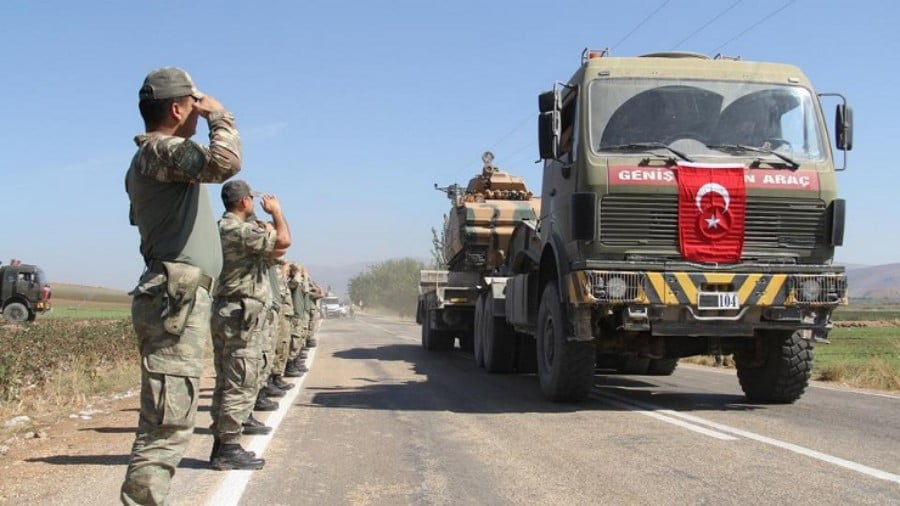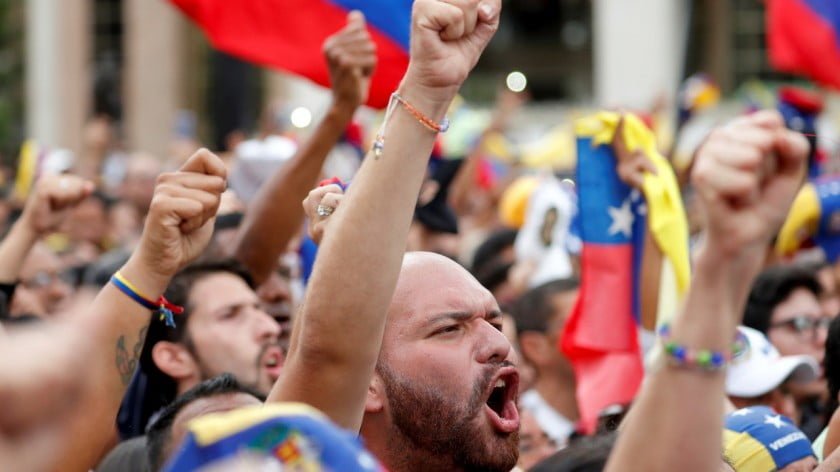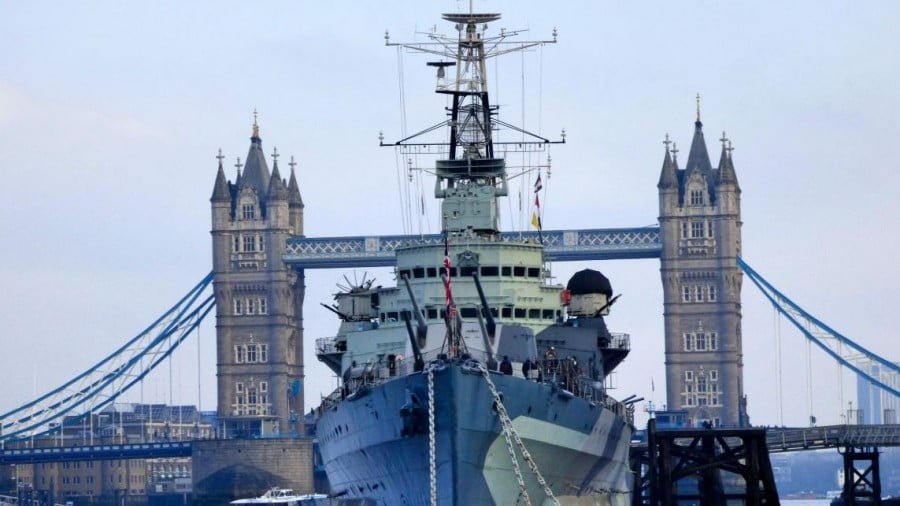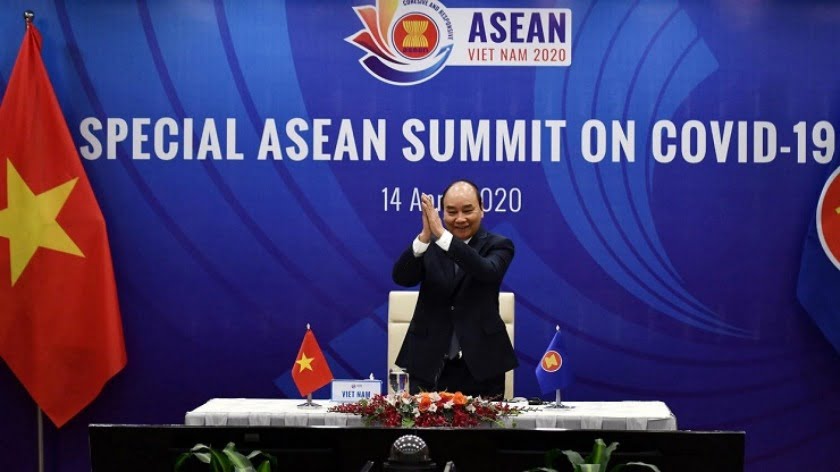Turkey Strengthens Its Position in Libya
Turkey has taken major steps over the past few years to significantly strengthen its position in the Mediterranean, with the aim of showing its neighbors in the region along with its NATO allies that Turkey plays a key role there.
Ankara has been focusing much of these efforts on protecting its interests in Libya, with which it shares maritime border in the Mediterranean Sea. From the very beginning of the Libyan Civil War, Turkey has backed Fayez al-Sarraj’s Government of National Accord (GNA) in Tripoli, as have the UN, the EU, and Qatar, which is rivaled by the Tobruk-based government (the House of Representatives, HoR) and the Libyan National Army (LNA) led by Field Marshal Khalifa Haftar (backed by Egypt and Saudi Arabia).
Apart from countering Egypt and Saudi Arabia, Greece is another reason why Turkey is siding with Tripoli. After the US coalition deposed Muammar Gaddafi, who had guaranteed the security of the maritime borders in the Mediterranean shared by Libya and Turkey, 39,000 square kilometers of EEZ and continental shelf have been disputed by Greece and Turkey since 2014, and this issue was discussed extensively in Tripoli by Turkish Minister of National Defense Hulusi Akar and Fayez al-Sarraj’s Government of National Accord (GNA) during talks held in 2018. Even at that stage, Turkey promised Tripoli help to protect these territorial waters, serving both Libyan and Turkish interests, including offshore energy reserves in contested waters that Greece also claims in its maritime dispute with Turkey, using the continental shelf of the island of Crete between Turkey and Libya as an argument.
“Mavi Vatan” or the “Blue Homeland” naval doctrine, which is Turkey’s ambitious plan for geopolitical supremacy in the eastern Mediterranean, has now become one of Ankara’s priorities in foreign policy. It encompasses Ankara’s longstanding fight with Greece over divided Cyprus and competition with Athens and maritime neighbors Egypt, Israel and Lebanon over oil and gas drilling rights. This doctrine reached a zenith when Libya’s civil war broke out, which has steadily drawn in several foreign powers even before it began in 2014.
Two agreements between Ankara and Tripoli were signed at the end of 2019 for the specific purpose of countering Greece: The Libya–Turkey maritime deal, delineating maritime borders in the eastern Mediterranean, and a second deal on security and military cooperation, to protect Tripoli from an offensive by Haftar’s LNA, which began in April last year and was later supported by several countries including the United Arab Emirates, Egypt, France and Russia. Under the security deal, Turkey can send troops to Libya at any time if invited to do so by Fayez al-Sarraj. Indeed, Ankara has already sent additional weapons and military advisers to the country in violation of the arms embargo imposed on Libya at the Berlin Conference.
The news that Ankara and Tripoli had signed these agreements was met with a great deal of caution in Greece when it broke in 2019, given that Ankara could use these documents as a legal basis to send drillships escorted by warships to search for oil and gas reserves in the Greek EEZ around the island of Crete, and if this were to happen, Athens would have to resort to using military force against its NATO ally.
To counter the Libya-Turkey deal, Egypt and Greece signed their own agreement on August 6, which sets a sea boundary between the two countries and demarcates an exclusive economic zone. Athens makes no secret of the fact that it took this step in response to the Memorandum of Understanding signed by the Government of the Republic of Turkey and the Government of National Accord on delimitation of the maritime jurisdiction areas. These two deals contradict each other, as the parties to each agreement claim the same waters. The question is how the signatories will go about defending their borders now.
Then a message was tweeted on the LNA support page about a new batch of weapons the Libyan GNA had received from Turkey despite the UN arms embargo. To be more specific, the tweet listed military equipment, as well as MIM-23 Hawk surface-to-air missiles and M4 automatic carbine assault rifles produced in the United States, which were delivered by a military transport plane that arrived at the Misrata air base.
In order to strengthen Turkey’s presence in the southern Mediterranean, Ankara has begun implementing the orders of Turkish President Recep Tayyip Erdoğan to expand its network of military bases and build new ones on the territory in Libya controlled by the GNA in Tripoli. Within the past year alone, a hangar to equip and store Turkish drones was built on the grounds of the civilian airport in Misrata. A Korkut 35 mm self-propelled anti-aircraft gun system has also been spotted at the al-Watiya Air Base.
On August 17, Defense Minister Hulusi Akar and Chief of the General Staff of the Turkish Armed Forces Yaşar Güler arrived in the Libyan capital on an unannounced visit. Another plane landed in Tripoli carrying Qatari Defense Minister Khalid bin Mohammad Al Attiyahi, who joined the officials from the Turkish military establishment. According to sources cited by the Al Arabiya TV news channel, Turkey, Qatar and the Libyan Government of National Accord then signed an agreement to establish a Turkish naval base and a tripartite military coordination center in the Libyan city of Misrata, and also agreed to set up training centers and headquarters for GNA fighters in Doha. The parties have also reportedly agreed to have Qatari military advisers sent to Libya to train the Libyan military, and have agreed to provide training at their military academies for Libyan cadets, in order “to boost the combat capability of pro-GNA forces”. According to the Saudi press, the current military situation east of Misrata and the plans for the attack on Sirte and al-Jufra were also supposed to have been discussed during the trilateral talks.
According to assessments from the League of Arab States, Ankara’s highly active level of intervention in Libya’s sovereign affairs has been the worst thing to happen throughout the entire Libyan crisis.
By Valery Kulikov
Source: NoneNew Eastern Outlook







